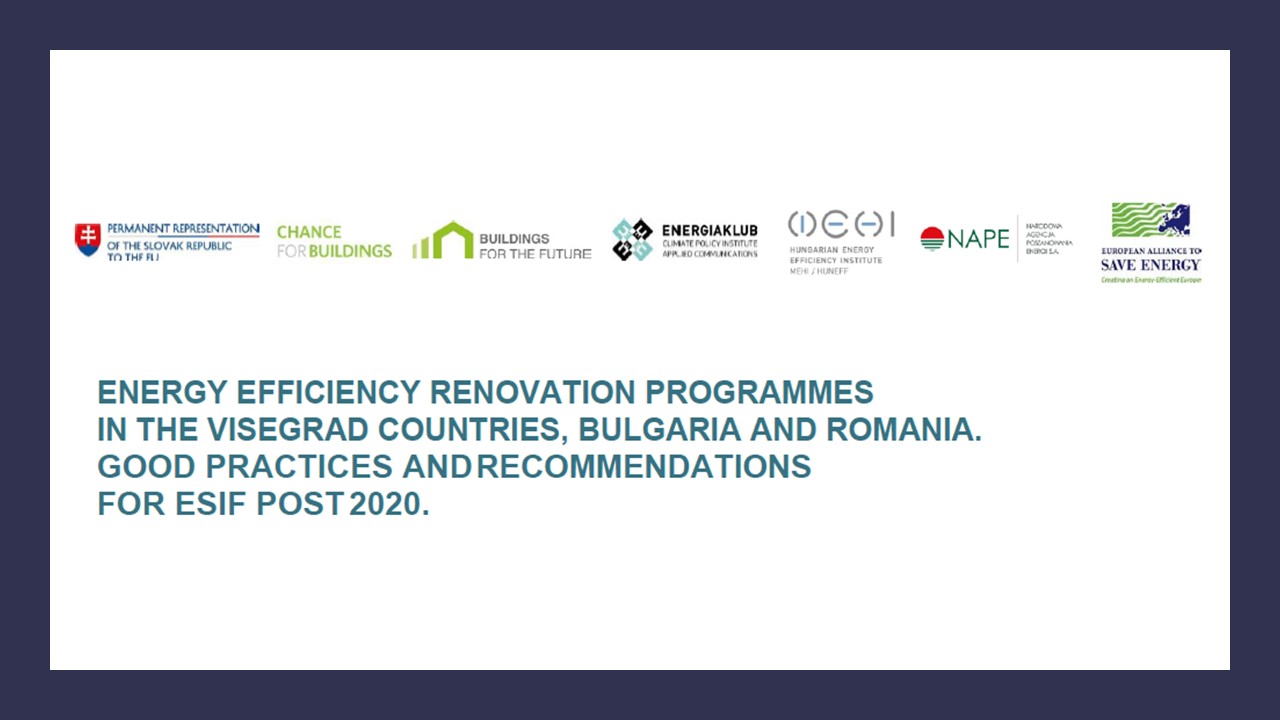The event organized in cooperation with the Permanent Representation of the Slovak Republic to the EU explored good practice and ideas on effective set up of the ESIF post 2020 focused on leveraging the crucial role of buildings in meeting the challenges of climate change and European energy targets in the Visegrad countries, Bulgaria, Romania and the EU in general.
Buildings for the Future, Chance for Buildings, MEHI, NAPE and the European Alliance to Save Energy (EU-ASE) joined forces to promote energy efficient renovation in buildings across the Eastern block of the European Union. As part of their effort they unveiled a set of recommendations for designing a more forward looking programming and effective use of ESIF post-2020.
The building stock accounts for approximately 40% of energy consumption and 36% of CO2 emissions in the EU, making them the single largest energy consumer in Europe. Renovation of existing buildings can lead to significant energy savings and plays a key role in the clean energy transition, as it could reduce the EU’s total energy consumption by 5-6% and lower CO2 emissions by about 5%.
The buildings sector is also the sector with the biggest current investment gap (at around €180 billion each year) — nearly three quarters of the EU’s 2030 clean energy investment gap is accounted for by energy efficiency in buildings.
With this in mind and in the framework of the ESIF post 2020 trialogue discussion, Buildings for the Future, Chance for Buildings, MEHI, NAPE, and EU-ASE have jointly organized a policy workshop to take stock of best practices in promoting energy efficiency of buildings in the Visegrad countries, Bulgaria and Romania.
The event “Energy Efficiency renovation programmes in the Visegrad countries: good practices and recommendations for ESIF post 2020” provided a timely opportunity for an expert contribution to the ongoing debate on the effective setup of future ESI Funds in promoting energy efficiency in buildings.
“Today it has been very useful to hear about good practices and renovation programmes from different Eastern European countries” – said Monica Frassoni, President of the European Alliance to Save Energy – “we wish that the recommendations and the inputs provided today will contribute to a 2021-2027 ESIF that sustain such programmes and bridges the gap between current and needed investment levels into energy efficiency of buildings”.
The initiative took place under the auspices of the Permanent Representation of Slovakia to the EU and with the support of the International Visegrad Fund.


